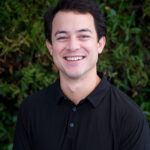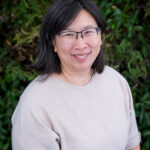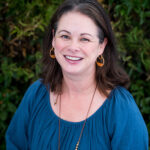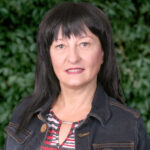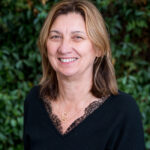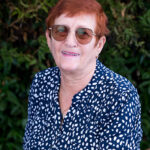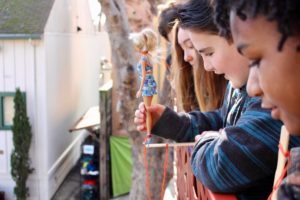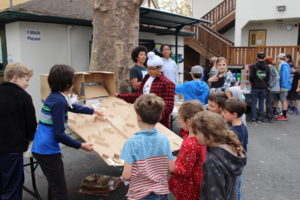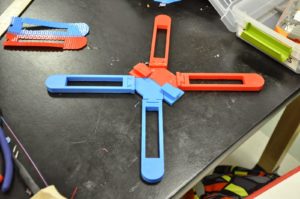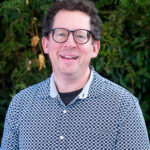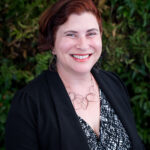Math, Science & Innovation
At our school, it's cool to like math and science.
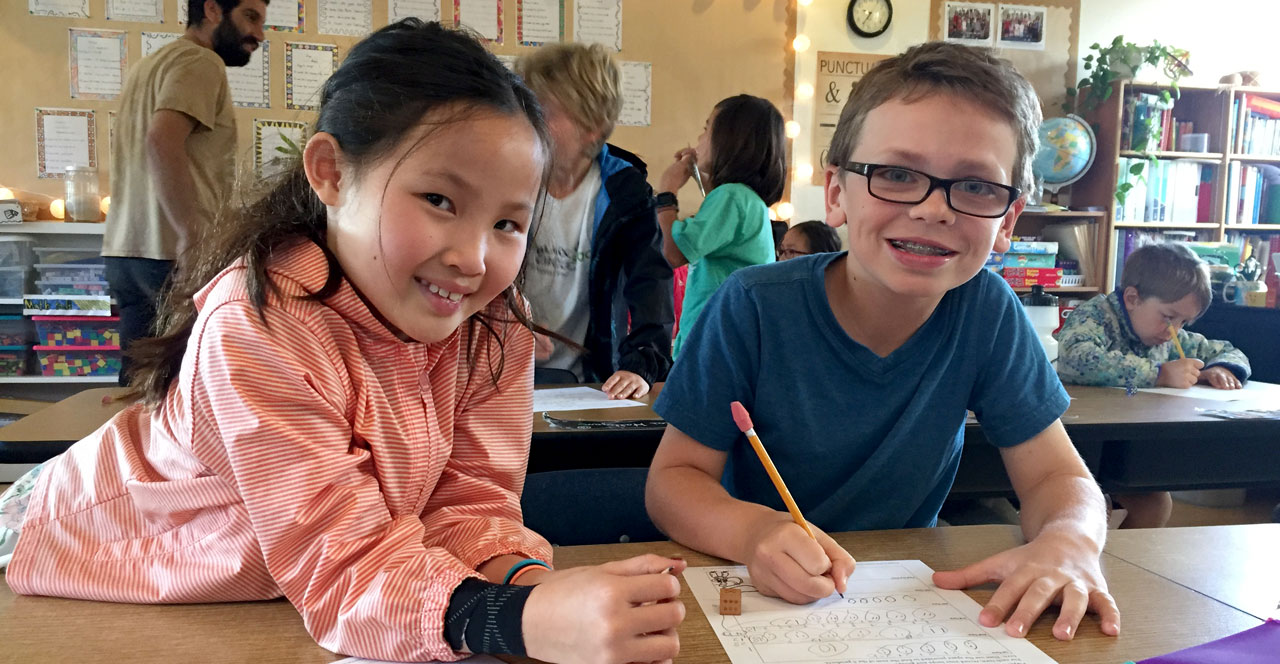
Mathematics
At Black Pine Circle, learning math is both challenging and fun. The elementary and middle school years are essential for building math literacy and proficiency, while maintaining enthusiasm for mathematical thinking. Your child’s math abilities will be understood and nurtured, whatever level they are starting from. Students who excel in math are inspired to grow. Students who need extra support are coached toward deeper understanding.
Math Faculty
Our school has been fortunate to have had an outstanding math faculty since its inception. Your child’s math teacher will be familiar with their learning profile, screen them for challenges, guide them to draw on their strengths, and keep them at their learning edge. Our lower and upper school math specialists also work with classroom teachers to differentiate, plan curriculum, evaluate student progress, and provide additional scaffolding for those who need it.
Why are our students so good at math?
The discipline and attention to detail it takes to learn a musical instrument provide excellent preparation for the practice of building strong math skills. The link between the physical practice of music and strong mathematical abilities has been demonstrated in studies that show that children who play a musical instrument can perform more complex arithmetical operations than those who do not play an instrument. At our school, it’s not uncommon for the star of our volleyball team to excel on the Math Team....and be a wizard on saxophone.
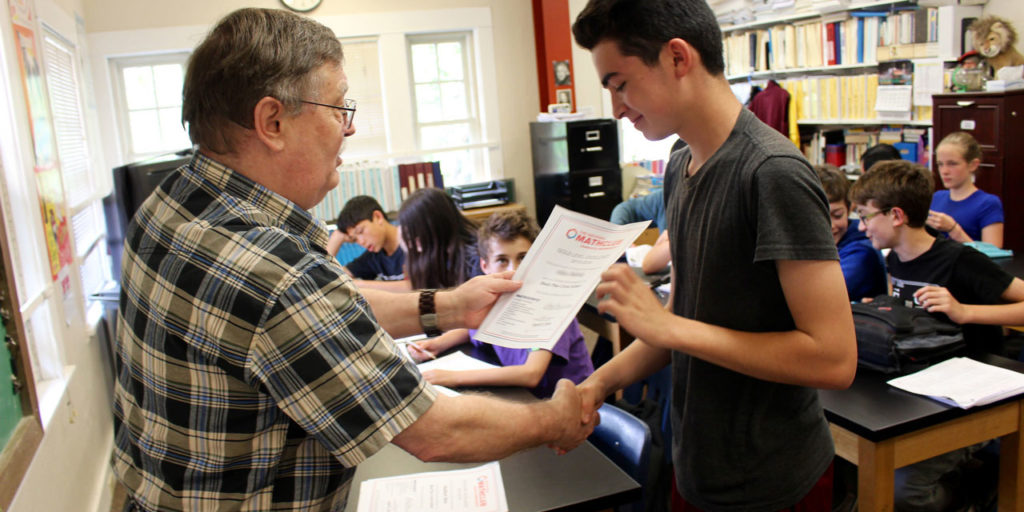
Math Team and Math Clubs
After school, students in 5th-8th grade can join one of our three Math Clubs to pursue their passion for solving high-level math problems. Our Math Teams compete in a number of Bay Area competitions annually, and some of our students participate in the Berkeley Math Circle, as well as other local math organizations. Other students simply looking for a challenge enjoy extra problems in addition to regular math homework assignments.
Math Awards 2024–2025
MAA/AMC 8 School Certificate of Merit 2025
The BPC School Team scored 55 points out of 75 and has been certified as a Merit School Team, among the top 25% of over 2,500 middle schools in the USA and abroad. 8th grader Yojan Petel scored 19 points and was awarded the Honor Roll Certificate. 6th grader Faaris Mohamed-Bangerter scored 17 points and was awarded the Achievement Certificate.
Mathcounts American Club Program - Gold Level Club Status
The BPC Math Club has achieved Gold Level Status since 2008. In 2025, the club submitted the Art in Math Project. The project was displayed at the National Competition Celebration Reception 2025.
Mathcounts Competition Achievements
For the third year in a row, the BPC Team placed 2nd in the Bay Area Chapter Mathcounts Competition 2025 and advanced to the 2025 State Mathcounts Competition held at the Harker School, San Jose, CA.
The 13th Annual Math League International 2024 Tournament
The event was held in July 2024 at the College of New Jersey. The BPC Math Team participated in individual, speed, and relay rounds as well as a team round. Raman Ravikumar and Kannan Ravikumar (class of 2024) were awarded Silver Medals, and Vidur Thammineni (class of 2025) received the Bronze Medal.
California Math League Contest (CMC) 2025
The 6th grade team came in 7th place out of 47 schools in the state and in 2nd place in Alameda County. The 7th grade students ranked 3rd in the regional standings and 11th in California. The 8th grade team came in 17th place out of 48 Schools in the state. 6th grader Oscar Holzman-White came in 1st place individually in California, scoring a perfect score of 35.
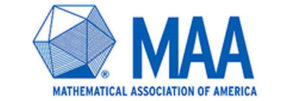
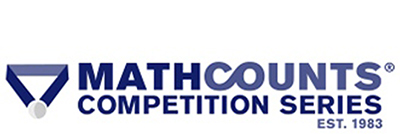
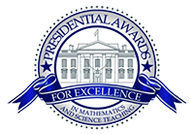

Science
Design thinking, computational tinkering, maker education, deep inquiry, and sharing our work with the wider community
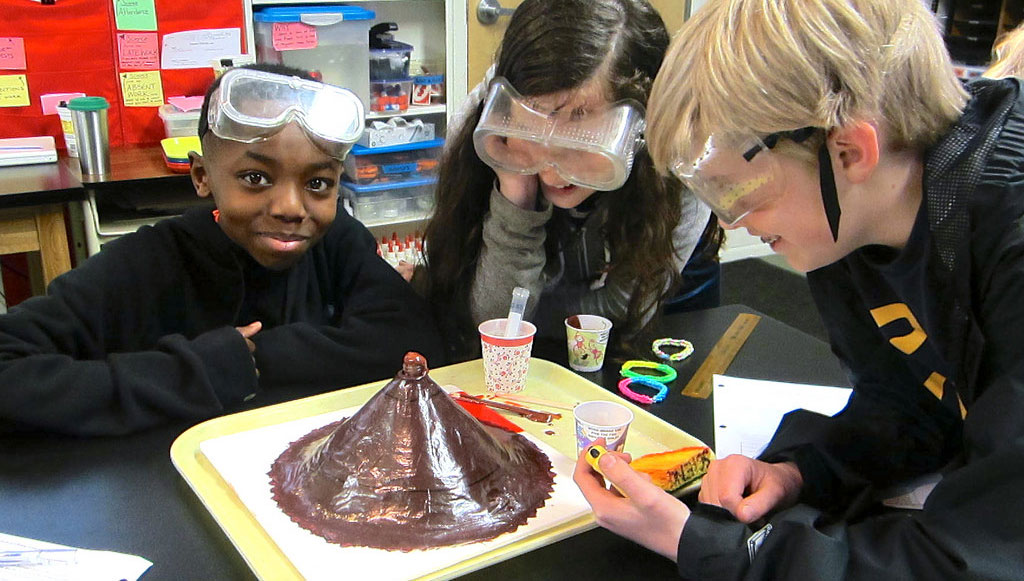
Exploring Science Everywhere
We believe science is not about memorizing big words. Instead, we nurture students’ natural curiosity, challenging them to make careful observations, to ask thoughtful questions, and to make connections in their world. Every BPC student participates in hands-on science weekly - facilitated by our lower school science specialist and our upper school science faculty. We prioritize deeper investigation rather than attempting to cover ever more content. From nearby Aquatic Park and Strawberry Creek to our school garden and chicken coop, BPC students learn science everywhere.
Our K–5 Science Program
Our K–5 science program nurtures curiosity, critical thinking, and a deep understanding of the world. Students explore core disciplines—life, earth and space, and physical sciences—through hands-on investigations, collaborative projects, and real-world applications.
Engineering is woven throughout the curriculum, with students applying scientific principles to design and build solutions, from kindergarteners creating hand-pollinators to fifth graders engineering safety helmets after studying the human brain.
Field trips to the California Academy of Sciences and the Tech Museum of Innovation complement classroom learning, while visits from expert guests—including a geologist and a neurosurgeon—offer students a window into scientific careers and inspire them to see themselves as future scientists and engineers.
Six Essential Practices for Science Education
- Asking questions (for science) and defining problems (for engineering)
- Developing and using models
- Planning and carrying out investigations
- Analyzing and interpreting data
- Using mathematics and computational thinking
- Constructing explanations (for science) and designing solutions (for engineering)
- Engaging in argument from evidence
- Obtaining, evaluating, and communicating information
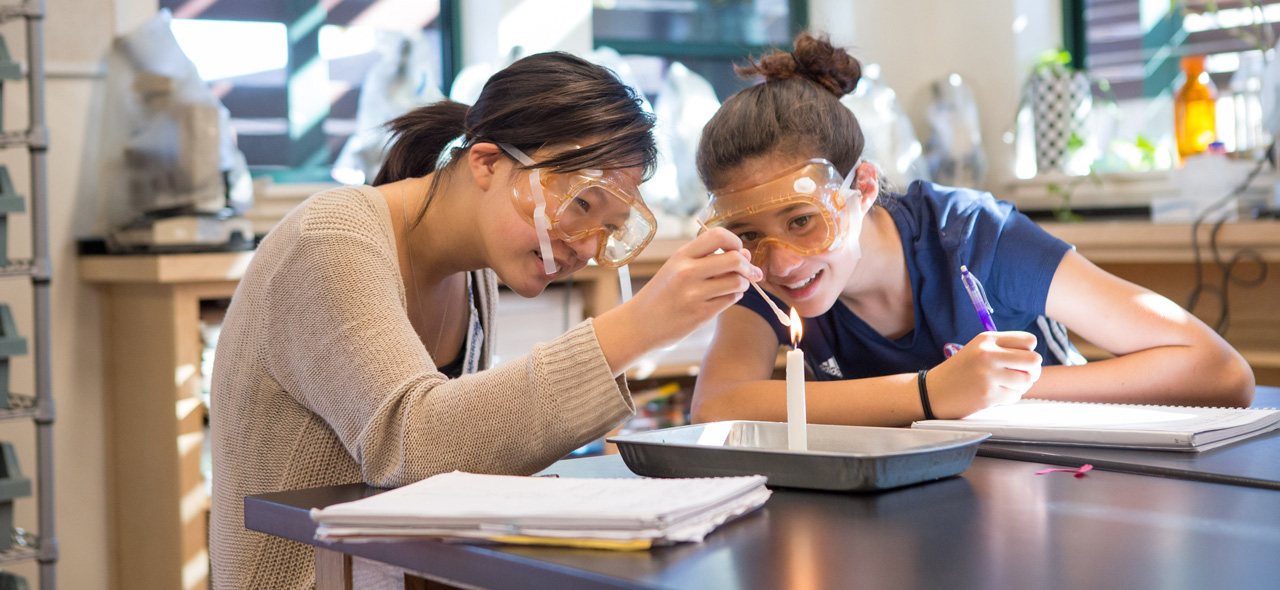
The Q Lab - A Space for Science & Inquiry
Opened for students in 2016, our Q Lab is like an exclamation point on our experiential and inquiry-based program. On an average day, in the earth and physical sciences classroom upstairs, you might see students measuring the energy generated by windmills or building pneumatic judo-bots.
Downstairs, in the makerspace classroom, 6th graders might be engaged in 3D design or printing, or 8th graders might be building a bench in Workshop. In the evenings, the space might be hosting one of our Family Maker Fridays, where K–8 students and their families gather to enjoy both high-tech and classic maker activities in our makerspace.
Dissecting Owl Pellets (3rd)
As part of their study of ecosystems, 3rd grade students step into the role of ecologists during an exciting owl pellet dissection.
Human Anatomy and Physiology with Dissections (7th)
This course offers an exciting, immersive experience that brings anatomy to life!
Making Solar Ovens (5th)
As part of our science unit on thermal energy, 5th grade students explore the principles of heat transfer, thermal conductors and insulators through a hands-on solar ovens project.
Science Week
Students choose their projects, and work to find a scientific answer to their hypothesis.
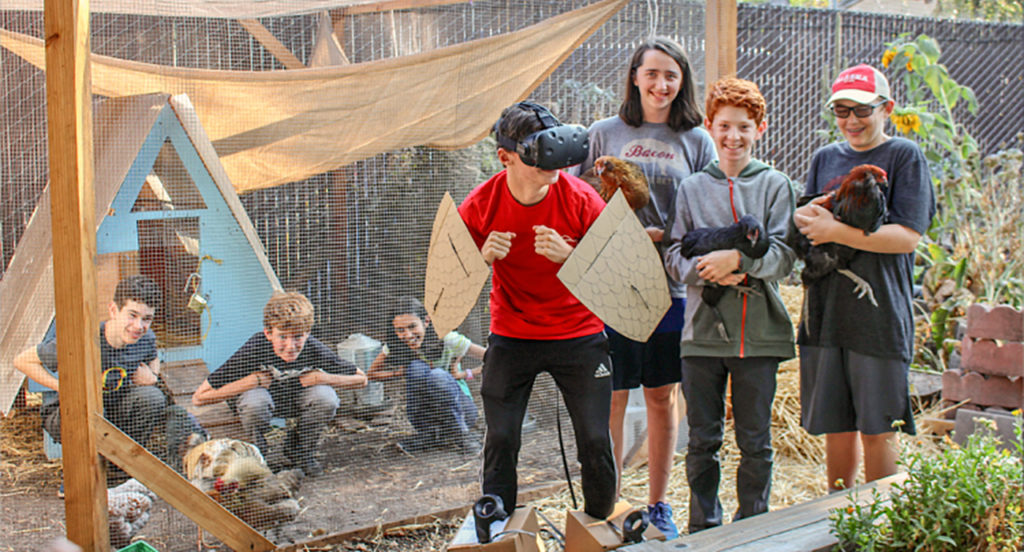
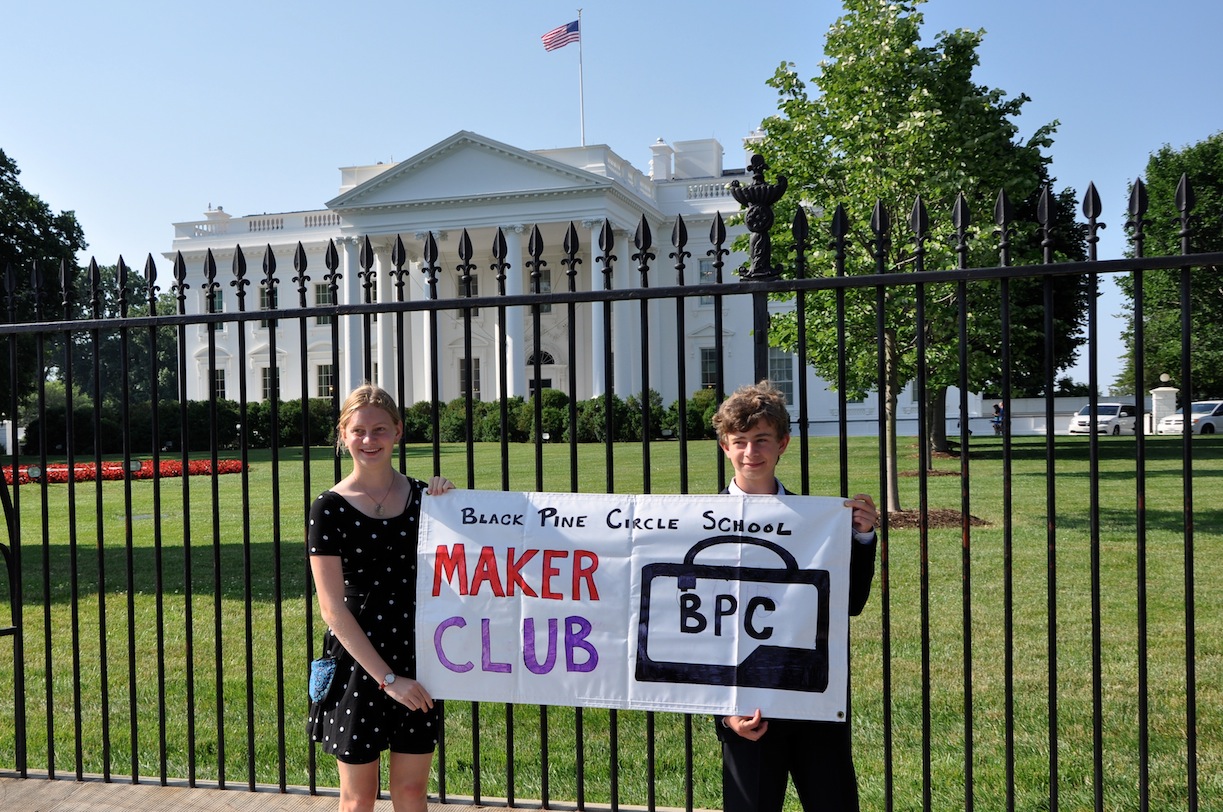
Maker Club
(info coming soon)
Family Maker Fridays
(info coming soon)
Lower School Engineering Club
The Lower School Engineering Club is an optional after-school program for students in grades K–3, led by our lower school science teacher. Held in the upper school science lab, the club invites young engineers to explore the properties of materials and tackle hands-on design challenges. Students build creations such as stomp rockets, catapults, skateboard parks, and doodle-bots while investigating scientific concepts like gravity, friction, energy, electricity, and air pressure. They also learn about the engineering design process and draw inspiration from iconic structures around the world. Through creativity, teamwork, and critical thinking, students experience the fun and discovery of real-world engineering.
Odyssey of the Mind
Odyssey of the Mind is an international creative problem-solving competition that challenges students to think imaginatively and work collaboratively. Our lower school team, coached by our K-5 science teacher, is made up of seven 4th and 5th graders selected through an application process each fall. Meeting weekly in the upper school science lab, the team chooses a long-term design challenge, builds a solution, and prepares for a spontaneous problem component. Students bring their ideas to life through writing, engineering, art, and performance, culminating in a regional tournament in late winter—with the potential to advance to state and world competitions.
Science Faculty


